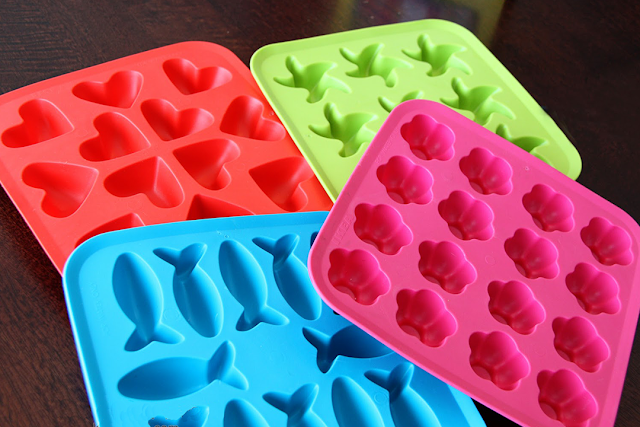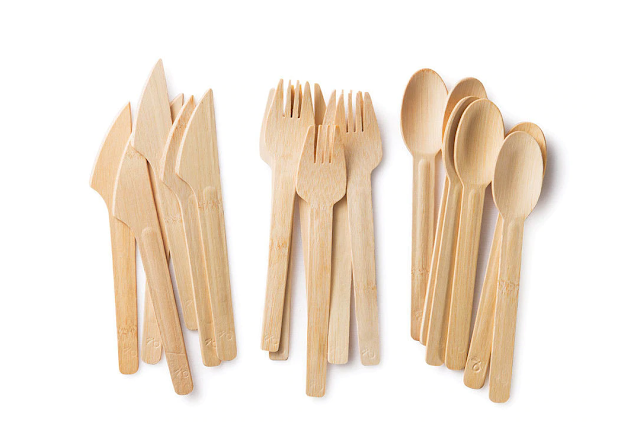Unless you’ve been living under coral, it’s likely you’ve heard of the environmental damage of plastics and disposable products, especially in our waterways. Thankfully we are becoming more aware of the dangers of these plastics. Photos of turtles with plastic rings around their shells, seals with gashes from fishing line, and seabirds with bellies bloated by debris have given humans a necessary wakeup call.
But, plastics and convenient disposables still play a roll in most of our daily lives, and it seems like it’s not yet an option to remove them completely. The bright side is that more and more eco-friendly products that can replace some of these commonly used items are coming onto the market. Here are a few replacements that you can integrate into your routine, to assist you in your personal quest to help save our planet!
Reusable Silicone
When it comes to offering a highly durable and reusable plastic substitute that doesn’t leak and doesn’t contain the chemicals commonly found in plastics, silicone is an ideal replacement. Silicone is safer for human health than petroleum-based plastic. It contains no bisphenol-A (BPA), which doctors, scientists and regulators have deemed a human health hazard.
Silicone is highly durable and more ocean friendly than plastic. Silicone is made from silica, which is found in sand. Silicone endures extreme fluctuations in temperatures - from very cold to oven hot - without melting, cracking or otherwise degrading. Silicone products include:
- Food storage bags
- Ice cube trays (available in fun shapes, too!)
- Reusable silicone drinking straws
Bamboo is the ultimate natural resource. The shoots can be picked for eating (stir fry anyone?), and the wood of older canes can be treated and used as anything from decorations to bicycles! A fabulous trend right now is utilizing bamboo fibers for fabrics and clothing.
Bamboo is eco-friendly. It absorbs carbon dioxide and releases a major amount of oxygen into the atmosphere. Moreover, bamboo belongs to the grass family, so it does not require pesticides, fertilizers or irrigation to enhance growth. Bamboo is antibacterial and hypoallergenic as well as innovative and beautiful. A few household items that you could consider are:
Beeswax
Long before plastic wrap was on the market, there was beeswax. Ancient Egyptians used it as a preservative, and artists have used it to strengthen clay in sculptures and model making. Of late, it’s become the magic ingredient for everything from candies to candles.
Several new start-up companies have figured out a way to use those same adaptable characteristics to benefit food preservation. etee, based in Toronto, Canada, spent about a year researching the properties of beeswax in an effort to create a pliable food wrap that didn’t have to be chucked into the garbage after one use. etee discovered that by adding essential oils and soy or resin to the beeswax, and then infusing organic cotton with the mixture, they were able to create a flexible “sticky” wrap that was not only reusable but had antimicrobial properties to help guard against food spoilage. Additionally, bees wax can be easily washed in light, soapy cold water and reused as many as 150 times. You can currently purchase the following items:
Plant Starch
Plant starch is considered a bioplastic, meaning it is derived from a renewable resource. It is made from a mix of 70% plant materials like corn, potatoes, and other vegetables and 30% fillers (like polypropylene) for strength and heat tolerance. While most single-use containers are currently made from cardboard bonded with plastic, making them unsuitable for recycling, plant starch materials are recyclable and renewable; they can be grown again and again.
And, here are a few things that you may have heard about, or will be seeing in the very near future!
Seaweed water bubbles
UK startup Ooho has created an alternative to the traditional plastic water bottle– a water bubble made of seaweed. The H2O is protected inside a gelatinous plant-film, so it's biodegradable and entirely edible. Meaning in the future, you might be eating your water, not just drinking it. Their aim is “to provide the convenience of plastic bottles while limiting the environmental impact.” They have developed a manufacturing process that makes this both more efficient and cheaper than producing plastic bottles. The process produces 5x less CO₂ and uses 9x less energy vs PET production.
Edible six-pack ring (point to blog)
Saltwater Brewery has developed a material for their six-pack rings, which are not only biodegradable and compostable, but also edible! Made of barley and wheat remnants– byproducts of the brewing process– this packaging will actually benefit sea life by providing an additional, safe food source! See their video here: https://www.youtube.com/watch?v=-YG9gUJMGyw
Mushroom root
With Mycelium (mushroom roots), packaging is literally grown. Ecovative Design, a New York-based biotech company, gathers agricultural waste, mixes it with the mycelium in molds, then literally grows the packaging.
Bagasse
Bagasse is a byproduct of sugarcane processing. Due to its malleability and stickiness, it can be easily molded into packaging suitable for food delivery and food service industries. Unlike the frequently used polystyrene, it’s certified biodegradable and compostable. Read about it here: https://en.wikipedia.org/wiki/Bagasse
Shrimp shell bags
To offset the more than one trillion plastic bags used around the world annually, bioengineers at the University of Nottingham in the U.K. are taking a unique approach. They’re developing biodegradable bags out of shrimp shells. For now, the project is aimed specifically at Egypt, where there is a huge overabundance of crustacean shell waste. The shells are collected, boiled in acid to make them less brittle, and stripped down to a plastic bag-like material. Just two pounds of shells can yield 15 biodegradable shopping bags! Check it out: https://www.nottingham.ac.uk/news/pressreleases/2016/december/surf-and-earth-how-prawn-shopping-bags-could-save-the-planet.aspx
While it may not be feasible to rid the planet of plastics, every step we take as individual contributors, and every piece of plastic we replace with an environmentally friendly alternative, can help make the earth cleaner and greener, and perhaps save a living creature or two.
Sub Sea Systems is committed to conservation. Check out our program, Reef Alliance. Be a part of the solution not the pollution.









No comments:
Post a Comment
Thank you for your comment!